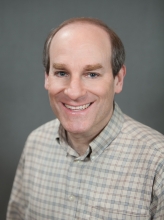
By: Robert H. Rich, Ph.D., CAE
Since the last issue of Witness the Arctic, Arctic research has seen much change. There were the changes in sea ice, changes in glaciers and the Greenland Ice Sheet, and changes in permafrost. There were also changes in the policy context for Arctic research, with a new U.S. Administration, new leadership, and new priorities. During this time, ARCUS has been both actively making a difference in supporting Arctic research and planning to be even more supportive in the months and years to come.
There are many highlights from our activities to report. I'm particularly excited about the new class of PolarTREC educators, who I had a chance to meet at their orientation in January. I'm confident that they will accomplish great things during their research experiences and after their return home. Previous generations of PolarTREC alumni have become true educational leaders in their communities. In 2016 alone, three of them won the Presidential Award for Excellence in Science & Mathematics Teaching and were invited to the White House.
We were pleased to initiate the first issue of Witness Community Highlights, a companion to Witness the Arctic, providing monthly updates of timely and important developments. We're always looking for items to share in Witness the Arctic and Witness Community Highlights, so please let editor Betsy Turner-Bogren know if you have something of wide interest to share with the Arctic community.
Internationally, ARCUS signed a memorandum of understanding with the Association of Polar Early Career Scientists (APECS) and with the Arctic Institute of North America (AINA), and I've been invited to senior advisory roles within those organizations. Since we are all about connecting, we're excited by the possibilities of what we can do together with those groups and with all of our other partners. At Arctic Science Summit Week (ASSW) in Prague, we organized a panel on Multiple Knowledge Systems for Arctic Understanding, which I facilitated on behalf of an international organizing committee. At that meeting, I also gave a presentation about ARCUS approaches and lessons learned as we've developed excellence in Arctic research project management, and spoke about career development at an APECS panel. One-on-one and in small groups, we made a lot of progress there in connecting U.S. researchers to the broader international Arctic research community. More information about ARCUS activities during ASSW is available here.
Our Arctic Research Webinar/Seminar Series in Washington, DC has grown in popularity and maintained an excellent lineup of speakers. In November, the University of Alaska Fairbanks' Hajo Eicken spoke about his Arctic sea ice studies. In January, Alaska Arctic Policy leader Craig Fleener presented the state's Arctic research priorities. Complementing that, U.S. Arctic Research Commission's John Farrell presented an update on Federal-level plans and science policy in February. In March, we explored Arctic shipping and related issues with Heather Conley from the Center for Strategic and International Studies. Stephen Fiore provided insights on the science of collaborative team science, a field which he has helped to pioneer at the University of Central Florida, and which ARCUS puts into practice every day. Leading Arctic blogger Mia Bennett spoke in April about infrastructure and the impacts of development in the region. Finally, Robert Corell shared his perspective in May on why the Arctic matters and how it affects us all. All of the seminars are archived and freely available here. You can register for upcoming webinars here.
Building upon the success of this seminar series, a new initiative to be launched in 2017 will bring leading Arctic Indigenous Scholars to Washington, DC for a seminar presentation and a series of meetings to help them to connect with the research administration and resource management communities. If you are, or if you know someone who is, an accomplished Indigenous contributor to Arctic knowledge, I encourage you to apply when the announcement is released.
ARCUS is also completing our Strategic Plan for 2017 and Beyond. This blueprint prepared by our Board and staff, informed by member and community feedback, sets a bold vision for maximizing the progress we make on the four ARCUS goals: Clear Identity, Organizational Strength, Fiscal Stability, and Impact. All of this, in turn, supports the overall purpose of ARCUS to connect Arctic research across boundaries through communication, coordination, and collaboration. If you have ideas for activities or priorities that ARCUS should pursue, I'd love to hear from you at bob [at] arcus.org.
As a part of the Arctic research community, you and all of your colleagues are invited to become ARCUS members. We are a member-driven organization, and our Board is elected by the members. All types of organizations and individuals are eligible to become ARCUS members. If you are reading this and share our passion for Arctic research across boundaries, we invite you to become a member. ARCUS membership information is available here. ARCUS membership allows you not only a voice in leadership but the opportunity to be among the first to know about our various activities. We look forward to hearing from you, getting to know you, and helping you to connect across boundaries.
Welcome New ARCUS Members (Since November 2016)
Rutgers, The State University of New Jersey
Norwegian Polar Institute
University of Northern British Columbia
Plus 43 new individual members!
